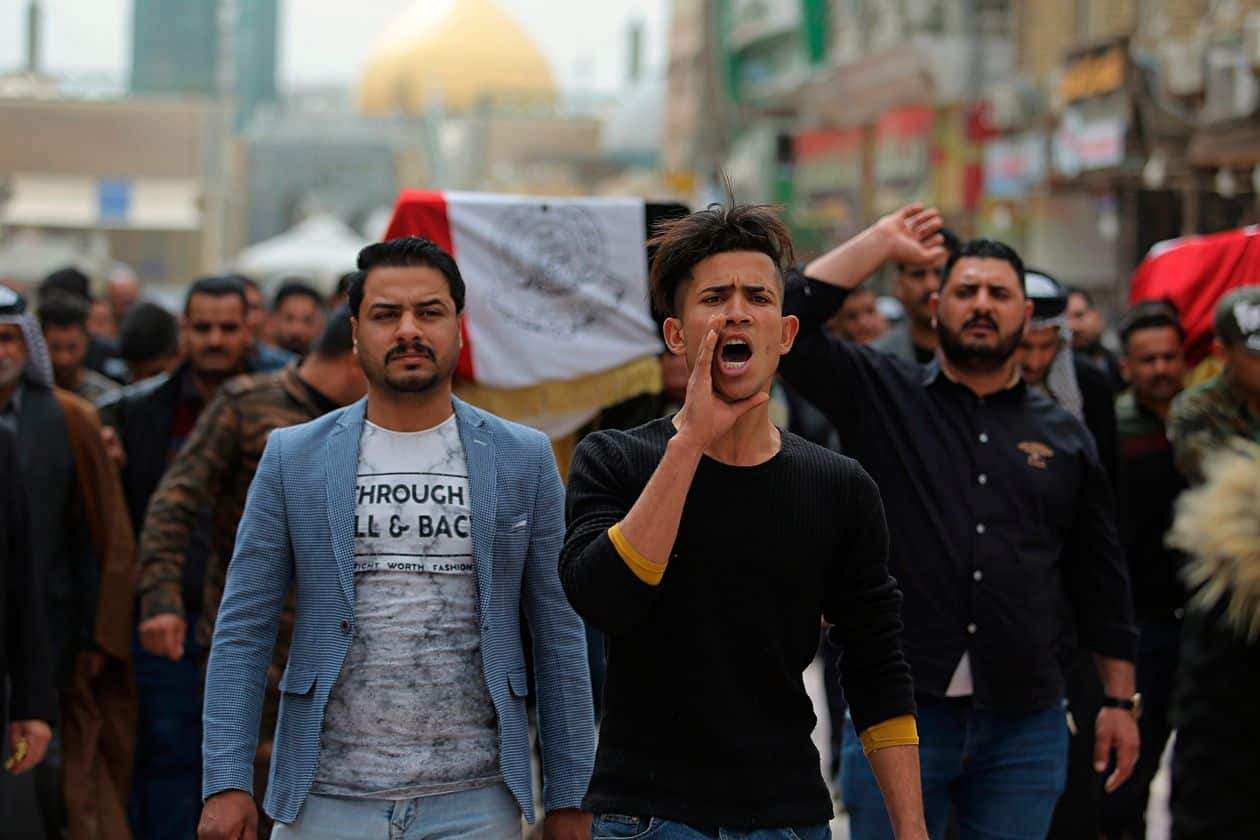Iraq Base Housing American Troops Hit by New Strike, Sustaining Tensions

Rockets struck an Iraqi base housing American troops on Saturday, lowering any expectations of de-escalation after U.S. strikes on an Iran-backed militia in response to the killing of two of its troops at the same base this week.
At least 25 rockets fell on Camp Taji early Saturday, wounding three U.S. service members, two of them seriously, U.S. officials said. Two members of the Iraqi air force command were also gravely wounded in the strike, an Iraqi military spokesman said.
The spokesman said the rockets had landed near the part of the base used by American and other foreign troops from the international coalition working with Iraq to combat Islamic State.
Such attacks are usually carried out at night but Saturday’s occurred in broad daylight.
“Today’s attack may send a message that attacks against U.S. forces will continue until they leave Iraq, and the U.S. can’t stop them,“ said Ali al-Ghanemi, a lawmaker in parliament’s security and defense committee.
U.S. troops face increasing dangers in Iraq, where they had previously coexisted with Iran-backed groups. This week’s rocket attacks renew tensions between Washington and Tehran, which had eased from a peak when the U.S. killed a top Iranian general on Iraqi soil in January.
Jonathan R. Hoffman, a defense department spokesman, described the attacks as “a deadly and dangerous distraction from the coalition’s mission to help the Iraqis with their goal to permanently defeat ISIS” and said the perpetrators wouldn’t get away with it.
While no group claimed responsibility for Saturday’s attack, the U.S. routinely blames Iran-backed militias, in particular Kataib Hezbollah, which on Saturday renewed threats to target American forces and urged others to join the fight.
Iraqi security forces tracked down the origin of the rockets to a transport hub around 3 miles from the base, where they found seven launchpads hidden in cinder-block shelters, the Iraqi military said in a statement. The owner of the transport hub and his employees were detained along with the policemen manning a nearby checkpoint.
Similar rocket attacks on Wednesday killed two American service members and a British medic. The latest strike on Camp Taji suggests the militias were undeterred by U.S. strikes on Thursday targeting weapons facilities belonging to Kataib Hezbollah. Gen. Frank McKenzie, the head of U.S. Central Command, which oversees operations in the Middle East, said those strikes had degraded the ability of Kataib Hezbollah to conduct further attacks.
The Iraqi military said six individuals, none of whom were members of Kataib Hezbollah, had been killed in the strikes Thursday.
Iraqi officials reacted angrily to the U.S. strikes, warning they would further inflame tensions and undermine the government as it grapples with multiple crises including an outbreak of the new coronavirus.
The repeated attacks show the limits of the Iraqi government’s control over an array of armed factions that are formally part of the security apparatus and draw salaries from the national budget but often pursue their own agenda—and Iran’s.
As the threats increase, the U.S. is moving to bring in Patriot missiles to defend its troops, despite the objections of the Iraqi government.
The U.S. has previously said it holds Iran responsible for any attack conducted by Iraqi militias allied with Tehran. Iran’s foreign ministry late on Friday summoned the Swiss ambassador, who represents American interests in Iraq, protesting the suggestion it was involved in the attacks there and criticizing America’s “wrong policies and illegal presence in Iraq,” as foreign ministry spokesman Abbas Mousavi was quoted as saying by state news agency IRNA.
Photo: Mourners chant slogans against the U.S. during a funeral procession Saturday for fighters killed in U.S. air strikes on Thursday. - ANMAR KHALIL/ASSOCIATED PRESS




